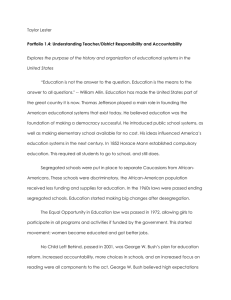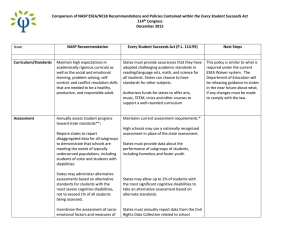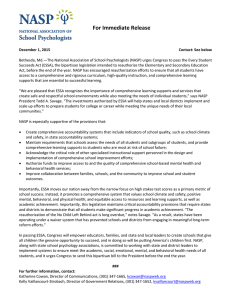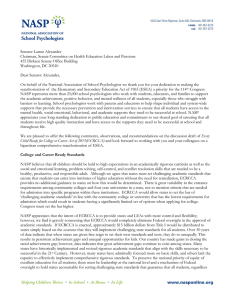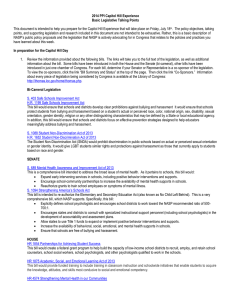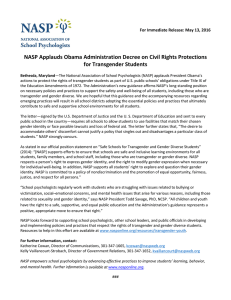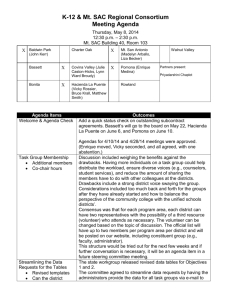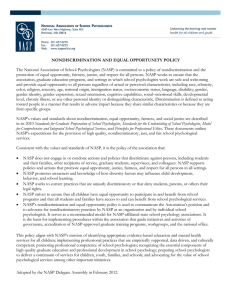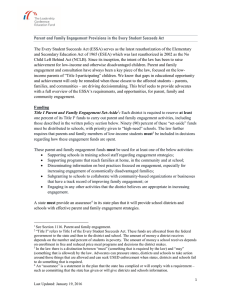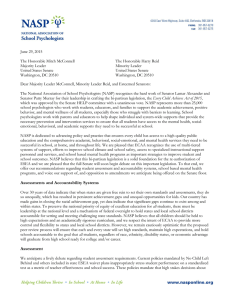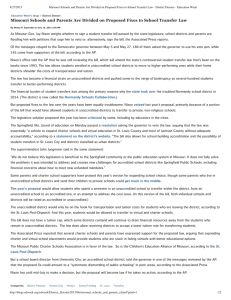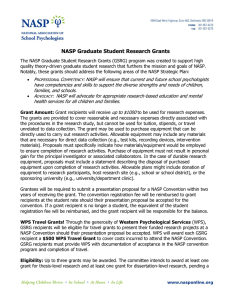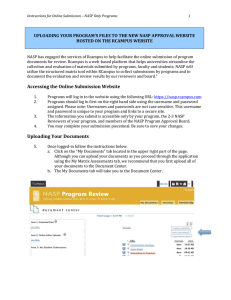President Signs the Every Student Succeeds Act
advertisement
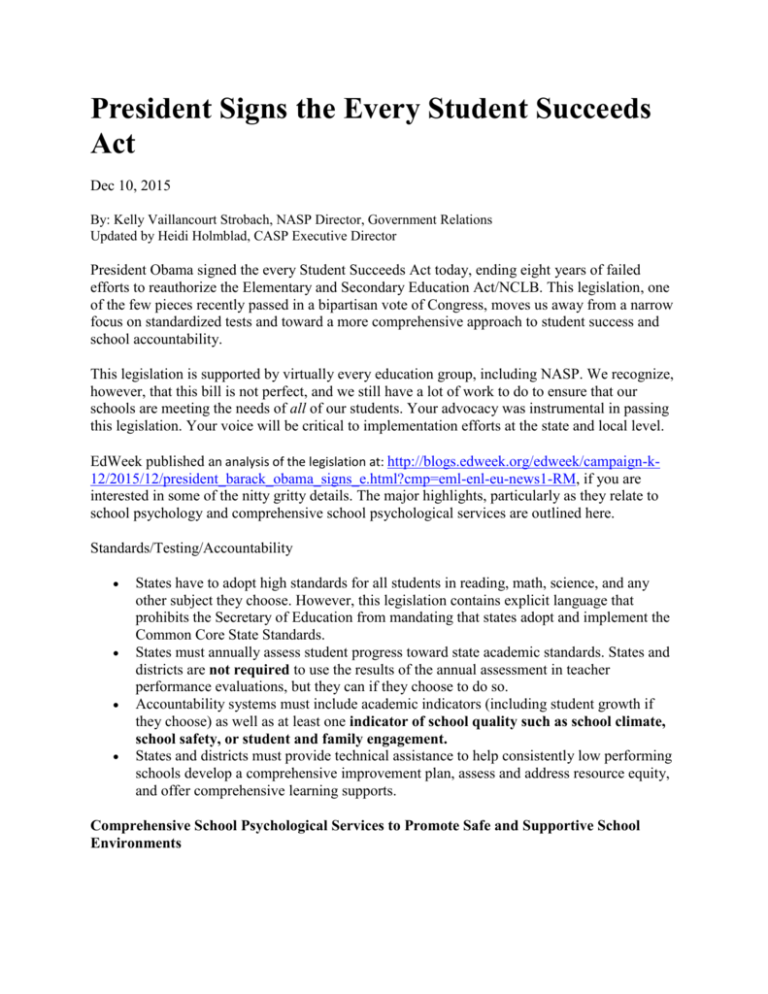
President Signs the Every Student Succeeds Act Dec 10, 2015 By: Kelly Vaillancourt Strobach, NASP Director, Government Relations Updated by Heidi Holmblad, CASP Executive Director President Obama signed the every Student Succeeds Act today, ending eight years of failed efforts to reauthorize the Elementary and Secondary Education Act/NCLB. This legislation, one of the few pieces recently passed in a bipartisan vote of Congress, moves us away from a narrow focus on standardized tests and toward a more comprehensive approach to student success and school accountability. This legislation is supported by virtually every education group, including NASP. We recognize, however, that this bill is not perfect, and we still have a lot of work to do to ensure that our schools are meeting the needs of all of our students. Your advocacy was instrumental in passing this legislation. Your voice will be critical to implementation efforts at the state and local level. EdWeek published an analysis of the legislation at: http://blogs.edweek.org/edweek/campaign-k12/2015/12/president_barack_obama_signs_e.html?cmp=eml-enl-eu-news1-RM, if you are interested in some of the nitty gritty details. The major highlights, particularly as they relate to school psychology and comprehensive school psychological services are outlined here. Standards/Testing/Accountability States have to adopt high standards for all students in reading, math, science, and any other subject they choose. However, this legislation contains explicit language that prohibits the Secretary of Education from mandating that states adopt and implement the Common Core State Standards. States must annually assess student progress toward state academic standards. States and districts are not required to use the results of the annual assessment in teacher performance evaluations, but they can if they choose to do so. Accountability systems must include academic indicators (including student growth if they choose) as well as at least one indicator of school quality such as school climate, school safety, or student and family engagement. States and districts must provide technical assistance to help consistently low performing schools develop a comprehensive improvement plan, assess and address resource equity, and offer comprehensive learning supports. Comprehensive School Psychological Services to Promote Safe and Supportive School Environments School psychologists are explicitly listed as “school-based mental health services providers” and as a group of professionals referred to as “specialized instructional support personnel” (new wording for PPS). o These professionals must be consulted in the development, implementation, and evaluation of comprehensive school improvement plans States must indicate how they will help districts address discipline, bullying, and harassment and improve school climate. States must improve the educational stability for children in foster care and those that experience homelessness. ESSA authorizes several funding streams to: o implement multi-tiered systems of support (e.g. PBIS) to address student learning, behavior, and mental health o expand access to school mental and behavioral health services o improve school safety and crisis response o create trauma informed environments o improve family/school/community collaboration o provide professional development on evidence based early identification and intervention methods o improve early literacy services In the coming months, NASP, in collaboration with our national partners, will be sharing more details about specific policies and practices that could be impacted by this legislation and specific actions that you can take to help states and districts implement systems of comprehensive school psychological services and advance the role of the school psychologist.
